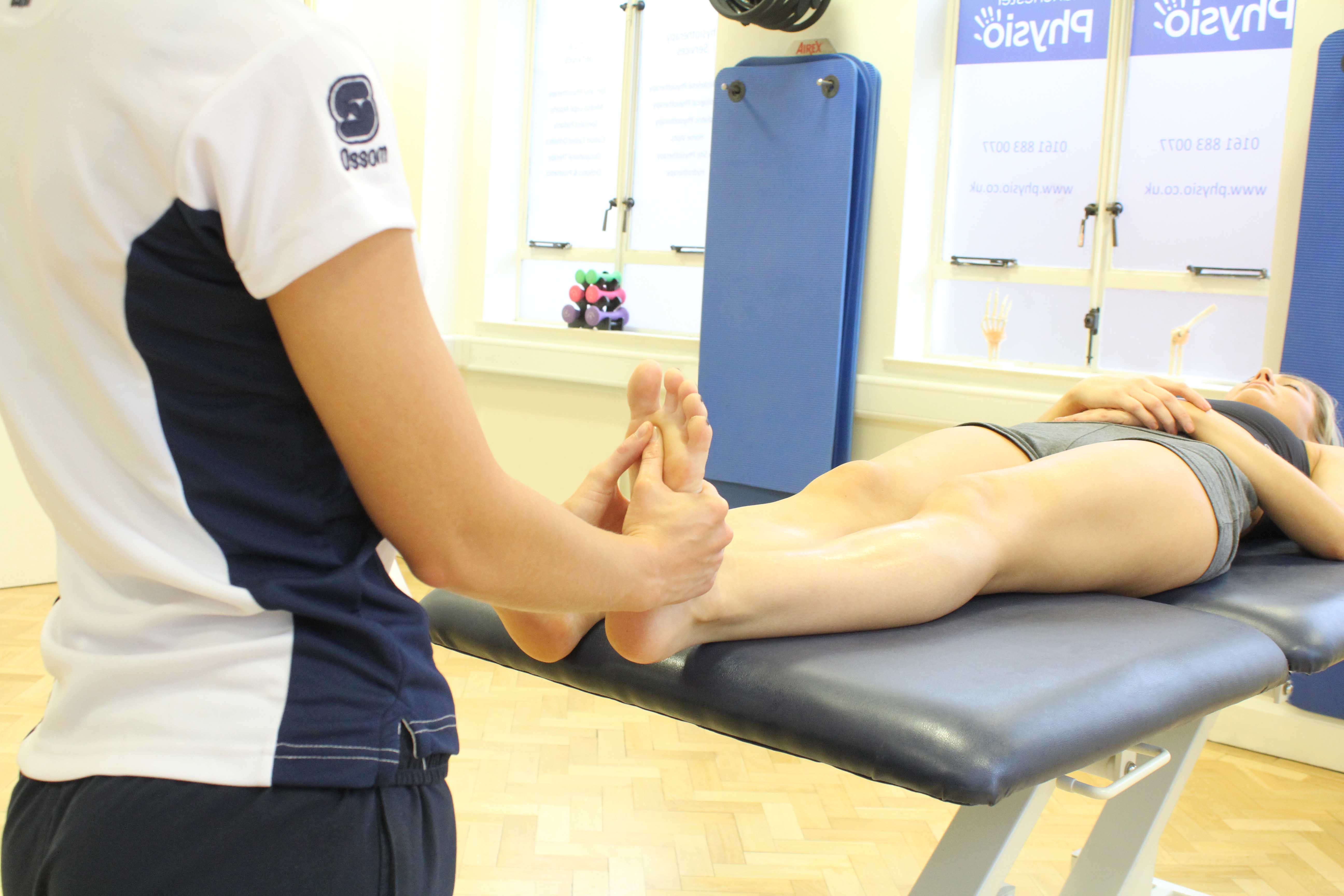What is plantar fasciitis?
The plantar fascia is a thick band of connective tissue that runs from the heel bone to the bases of the toes and supports the arch of the foot. Plantar fasciitis an injury commonly caused by overuse that triggers swelling of the plantar fascia at its attachment site on the heel bone. Plantar fasciitis usually causes pain on the inside edge of the heel. Physiotherapy is an important treatment for plantar fasciitis.
How does plantar fasciitis happen?
Plantar fasciitis is the stretching or ‘pulling’ of the plantar fascia from its attachment on the heel bone. Activities or occupations requiring large amounts of walking, running and dancing are commonly associated with the development of plantar fasciitis.
 Above: Physiotherapist applying massage to the planta fascia of the foot
Above: Physiotherapist applying massage to the planta fascia of the footWhat are the symptoms of plantar fasciitis?
The pain is usually worse in the morning, with the first few steps being very painful. Pain is worse with high impact weight-bearing activities such as running or jumping. Pain is normally localised to the inside border of the heel. Over time the inflammation generally worsens and the intensity of the pain increases. Other symptoms can include:
What should I do if I have plantar fasciitis?
If you have or suspect you have plantar fasciitis then you should organise physiotherapy treatment as soon as possible. The earlier treatment is obtained, the higher the chance of treatment success.
What shouldn’t I do if I have plantar fasciitis?
You should not hope that the pain will go away without treatment. This injury is commonly ignored as it warms up as you exercise. However, each time you weight bear on it you are causing more swelling. Eventually, as your condition progresses, the pain will not warm up and, at this point, your injury is also far more difficult to treat, and may take longer to respond to treatment.
 Above: Progressive strengthening exercises for the foot and ankle, assisted by specialist MSK physiotherapist
Above: Progressive strengthening exercises for the foot and ankle, assisted by specialist MSK physiotherapistPhysiotherapy treatment for plantar fasciitis.
Physiotherapy is important in the diagnosis and management of plantar fasciitis. An accurate diagnosis is necessary to ensure a successful outcome. Treatment is largely dependent on what is found during your assessment, however, a combined approach is normally taken. Treatment may include: Surgery or anti-inflammatory injections are sometimes considered in some individuals if conservative treatment has been exhausted.
To arrange a physiotherapy assessment call Physio.co.uk on 0330 088 7800 or book online.

 0330 088 7800
0330 088 7800


































